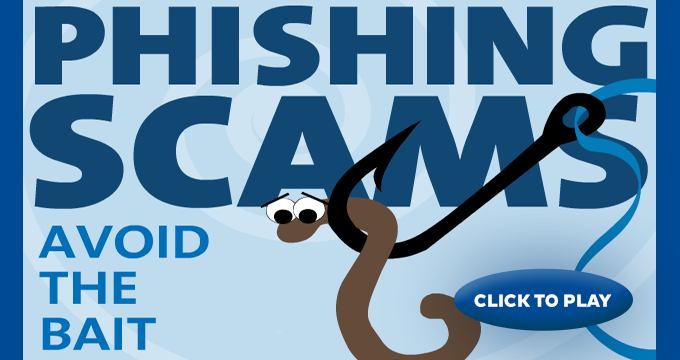How Phishing Scams are Targeting Bloggers and How Bloggers Can Fight Back

“Phishing email will direct the user to visit a website where they are asked to update personal information, such as a password, credit card, social security, or bank account numbers, that the legitimate organization already has.” - Webopedia.com
It’s common knowledge that email, social media, and dating website users are subject to phishing scams. These scams are designed to lure people into conversations about their identities, but many spam programs are capable of filtering out these messages. Unfortunately for bloggers, there’s no spam protection against random people contacting you in a devious effort to phish your information from you.
How Phishing Scams are Attacking Bloggers
It’s a growing trend to target bloggers (usually in the form of a random message attempting to get you to open an attachment, or click a link to a malicious website). A more targeted approach does exist, and it’s being used more often. This trick is disguise a message to make it appear as though it came from your bank, your employer, your web host, or even your parents. Often times these messages seem legit because they reference your blog.The objective is always the same (no matter how you’re contacted): Get you to open up about your personal information in order that the phisher can steal your identity.
Bloggers, specifically, are targeted the following ways:
- Phishers leave comments on blog posts, and through contact forms you’ve placed on your website
- Phishers will send emails/comments/IMs praising you at-length about your writing skills; this person will push you to provide them with your email address, or speak privately to them via IM or even over the phone
How to Identify a Phishing Scam
- Phishing scammers have horrible spelling and grammar. Not all phishers will be so careless as to include obvious typos, but many will.
- Phishers like to use strong-arm tactics, such as “We’ll close your account…” or imply any kind of urgency to your response
- Phishers often need to verify your personal information urgently
- Phishers may include links to websites that you regularly use, including your web host
- Phishers include downloadable attachments in their emails
How Phishing Scams Affect Bloggers
These scam artists will do everything in their power to ruin your credit, and assume control of your blog. They will hack you, and use your identity to attack others. The affects can ruin a person’s entire life, so it’s best to avoid becoming a victim of phishing.Do not reply to emails that ask for personal identification. Sometimes, phishers will save their phishing questions for later on. They’ll open up a dialog with you, and give you the appearance of ongoing support. Then, they’ll send you an email with an attachment included. This attachment will contain malware, which will download onto your computer’s hard drive. The purpose of this is to acquire personal information, which is then sent to the phisher. Once they have everything to assume your identity, they will. And, they’ll continue phishing from your computer until the malware is removed.
How to Protect Yourself
Stay vigilant, and keep a phisher’s traits in mind whenever you connect with anyone online. More importantly, keep your computer and devices safe with enhanced internet security, which safeguards you on all websites and monitors your emails and social media accounts.If you believe you’ve discovered a possible phishing scam, it’s crucial that you don’t click any links or download any files. If you do click or download anything, immediately begin changing your passwords and running your antivirus.
You can protect yourself if you have your spam filters set correctly. If you’re unsure how to set your spam filters, your internet security application may be able to set them for you. Or, you can check out the spam filtering guide on MediaTemple.net.
The most important thing you can do is avoid giving out personally identifying information online. Use a pen name if you’re worried about phishers, and never-ever give out your email address. If you avoid giving away identifying information, you’ll make it a lot more difficult for the phisher.
In the unfortunate event you’ve fallen victim to phishing, there are steps you can take. First forward the spam to spam@uce.gov, and report the crime to reportphishing@antiphishing.org. If your credit or identity has been stolen, a complaint can be filed with the Federal Trade Commission at www.ftc.gov/complaint.
How Phishing Scams are Targeting Bloggers and How Bloggers Can Fight Back
![How Phishing Scams are Targeting Bloggers and How Bloggers Can Fight Back]() Reviewed by Unknown
on
4/30/2015
Rating:
Reviewed by Unknown
on
4/30/2015
Rating:




No comments:
Post Your Comment Here Please